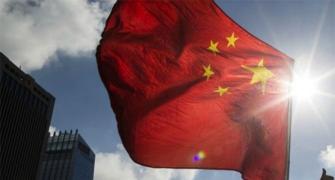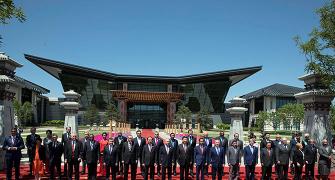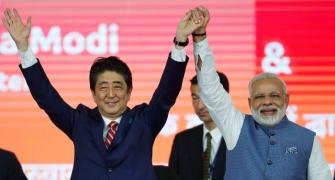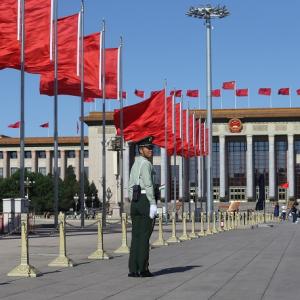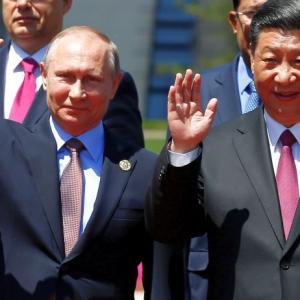 India is in talks with Australia, the United States and Japan about setting up a regional infrastructure scheme as an "alternative" to China's multi-billion dollar Belt and Road Initiative, according to a media report.
India is in talks with Australia, the United States and Japan about setting up a regional infrastructure scheme as an "alternative" to China's multi-billion dollar Belt and Road Initiative, according to a media report.
Touted as Chinese President Xi Jinping's ambitious project, the One Belt One Road initiative focuses on improving connectivity and cooperation among Asian countries, Africa, China and Europe.
The Australian Financial Review quoted a senior US official as saying that the plan of the four regional partners was still "nascent" and "won't be ripe enough to be announced during the Prime Minister Malcolm Turnbull's US visit this week".
The US official who was not identified described that the plan as an "alternative" to the Belt and Road Initiative rather than a "rival", the report said.
Notably, India was the first country to object to One Belt One Road, part of which passes through the Pakistan-occupied Kashmir. India has said that the China Pakistan Economic Corridor (CPEC) violates India's sovereignty. Last year, India had skipped China's OBOR summit held in Beijing.
Following India's objections, many countries, including the US, have come out openly against China's OBOR.
"No one is saying China should not build infrastructure," the official said, adding "China might build a port which, on its own is not economically viable. We could make it economically viable by building a road or rail line linking that port".
Turnbull will be leaving for Washington on Wednesday for a three-day visit during which he will meet the US President Donald Trump and will be leading a delegation of state and territory leaders and business executives.
Meanwhile, Australian Foreign Minister Julie Bishop on Monday said that China was the largest trading partner for Australia and the OBOR was one option whereby nations could access funds for critical infrastructure.
"Australian government is acutely aware that we need significant investment in infrastructure, particularly in our region in the Indo-Pacific and One Belt, One Road is one option whereby nations can access more funds for critical infrastructure,'' she said.
"It's early days for the One Belt, One Road initiative, and we are obviously monitoring it closely. We are already working with China on a development project in Papua New Guinea, so we hope that we will be able to work more closely with China in driving economic, sustainable economic growth in our region," she said.
"Our concerns are to ensure that Pacific nations are not burdened with debt they cannot repay, that all transactions are transparent and that there is an appropriate level of governance. So we hope to work with China to ensure that infrastructure in our part of the world, particularly in the Pacific, adds to the sustainable economic growth of those countries," she said.
India, the US, Japan and Australia last year held their first official- level talks in Melbourne with a focus on keeping the Indo-Pacific region "free and open", seen as a move to counter China's aggressive behaviour in the area.
Image: Prime Minister Narendra Modi, Japanese Prime Minister Shinzo Abe and US President Donald Trump at the gala dinner ahead of the 31st ASEAN summit. Photograph: @narendramodi/Twitter

